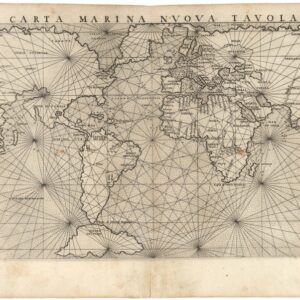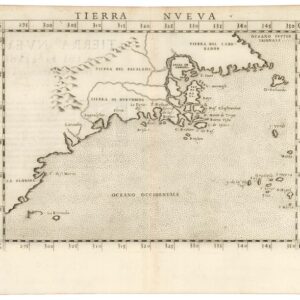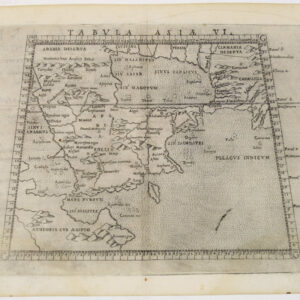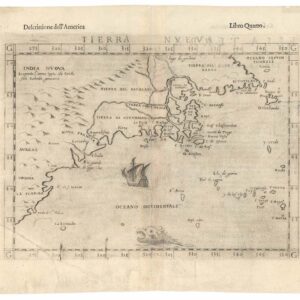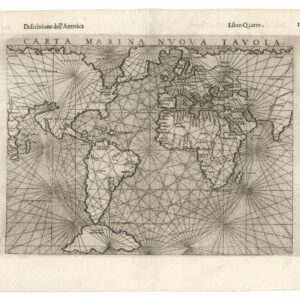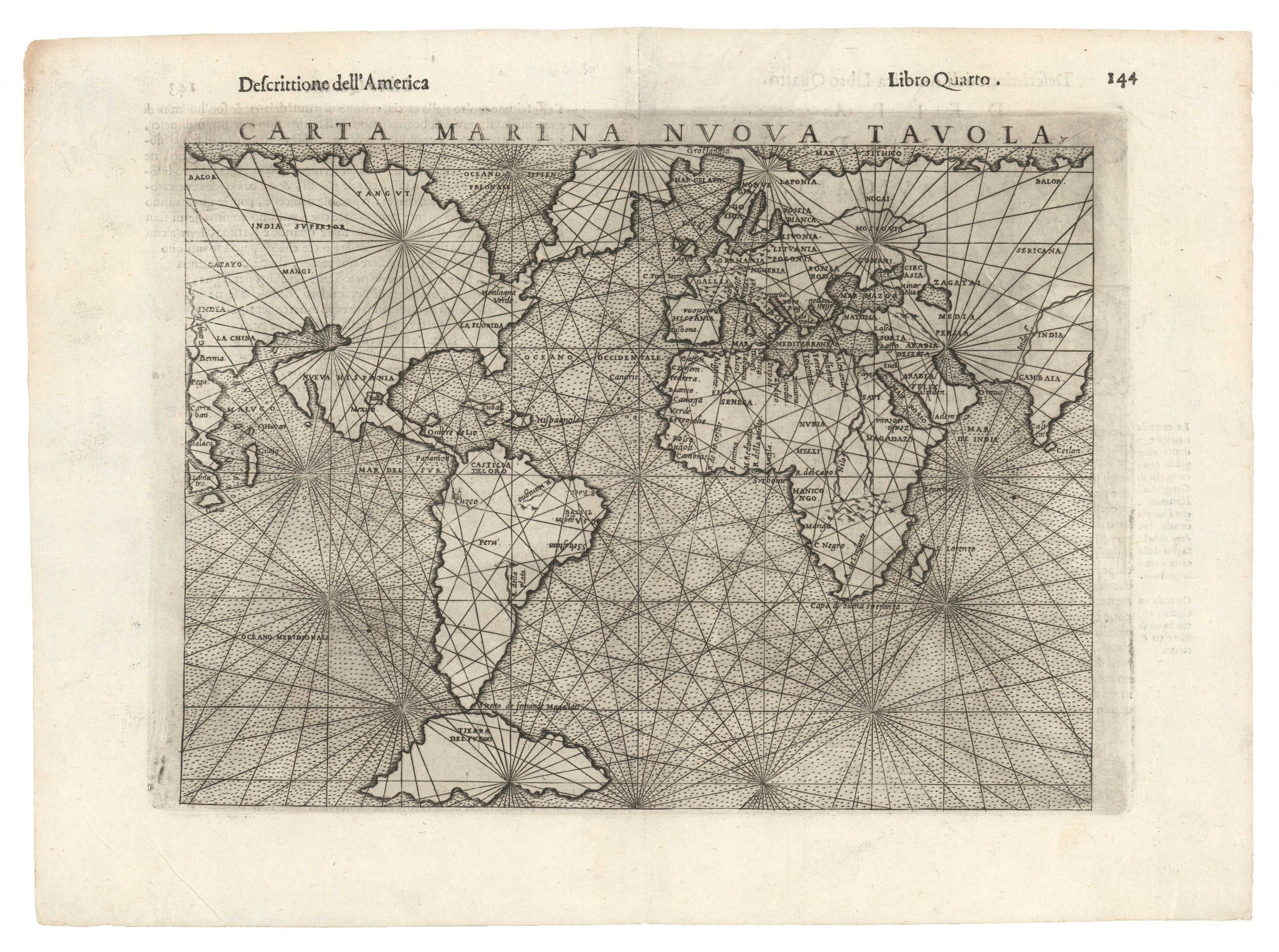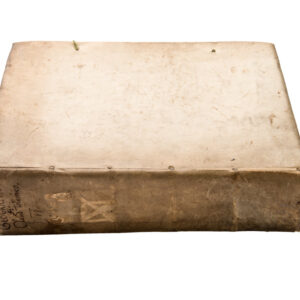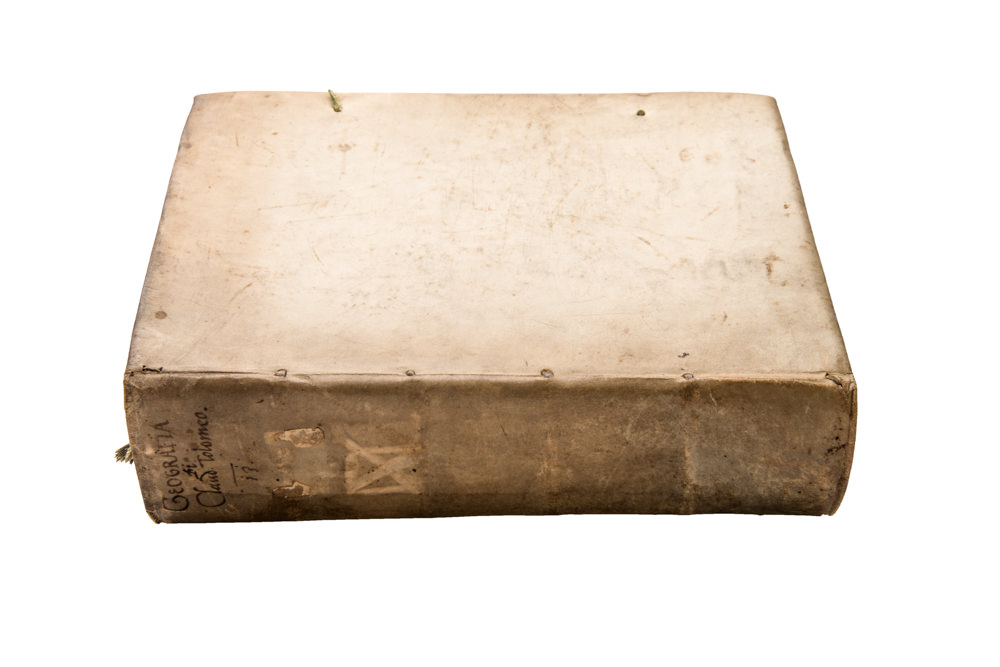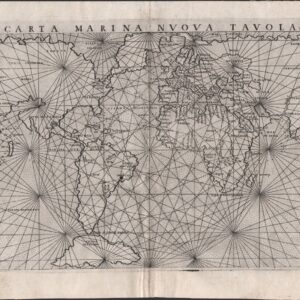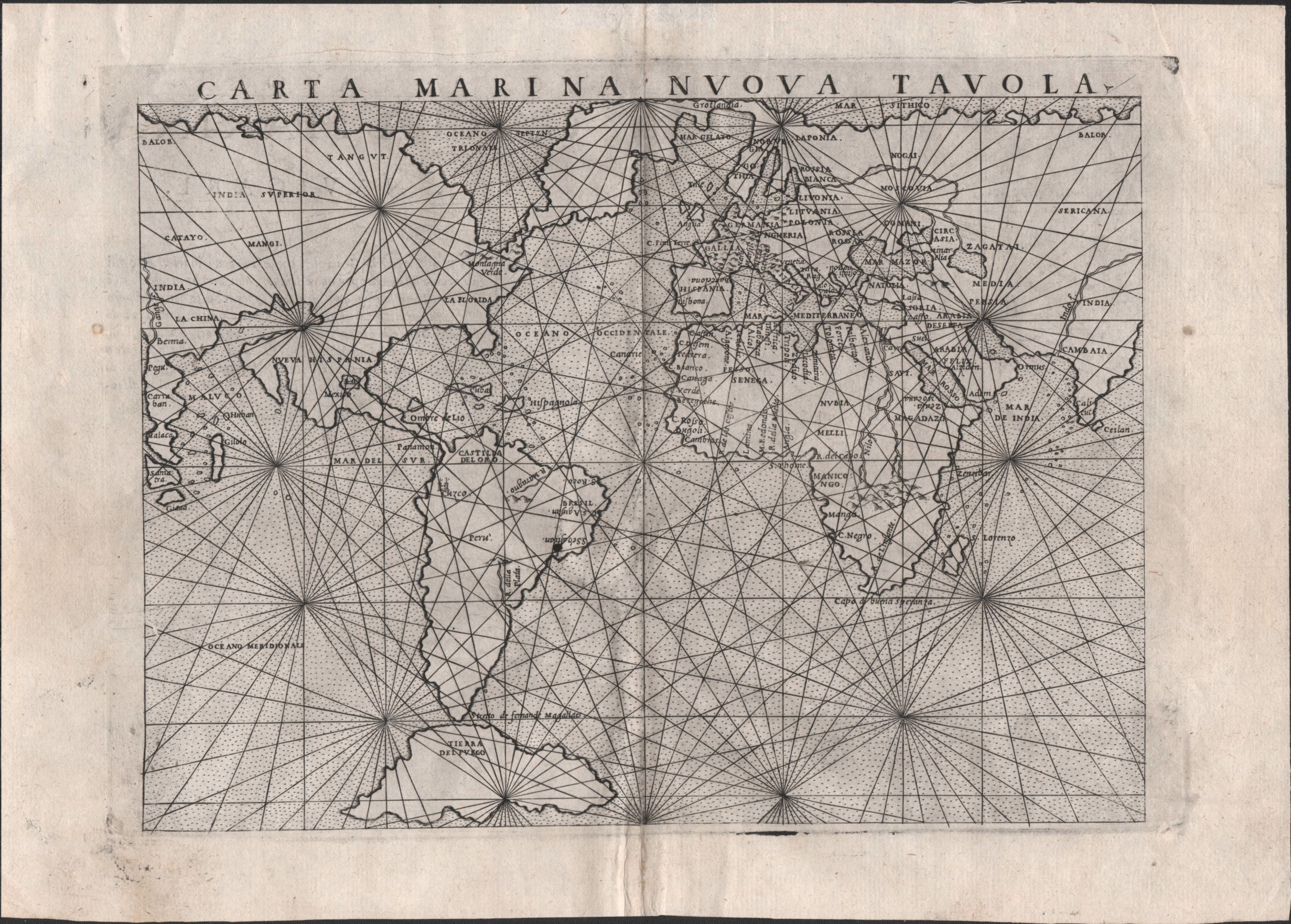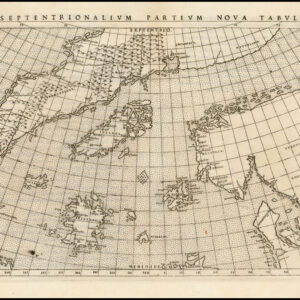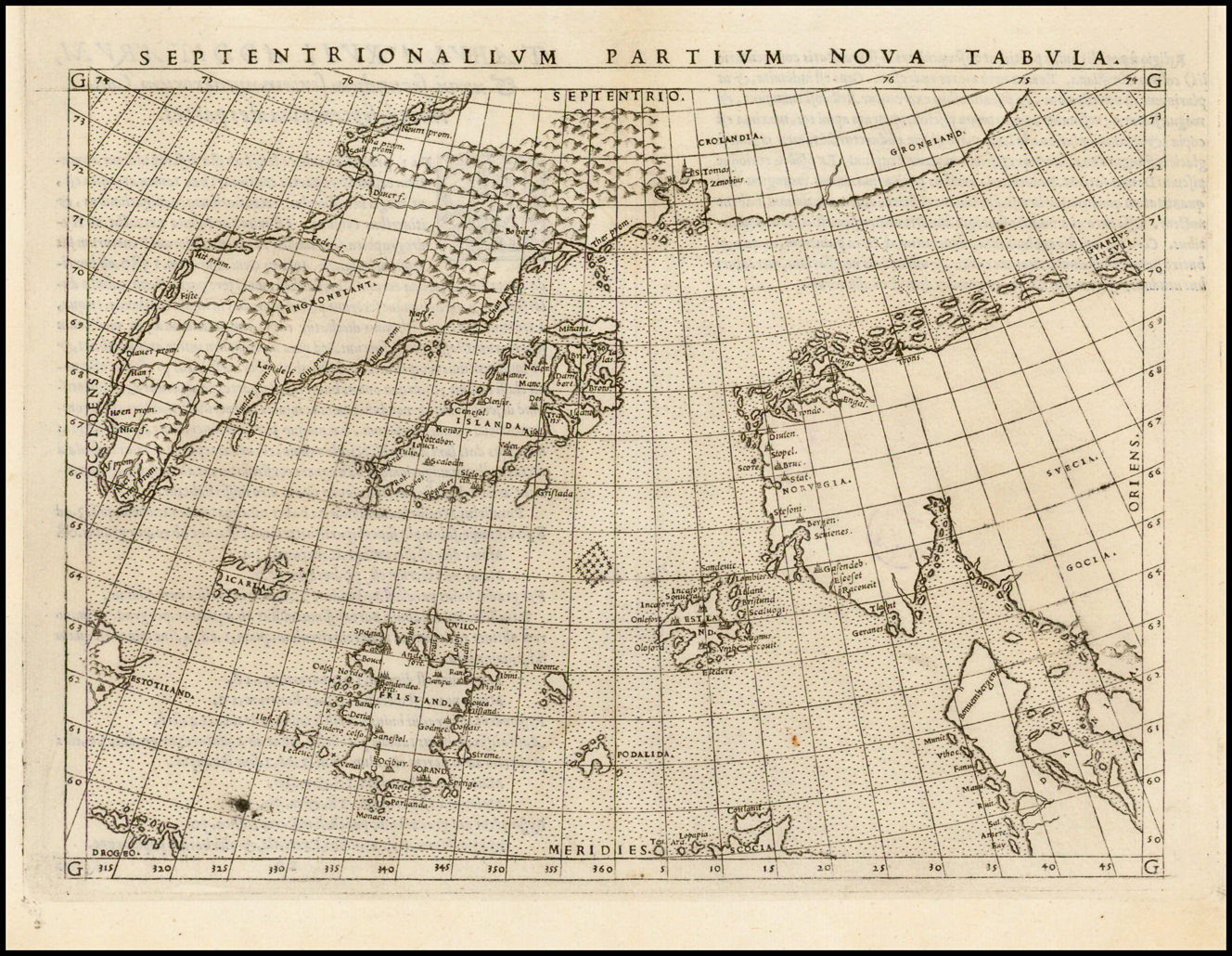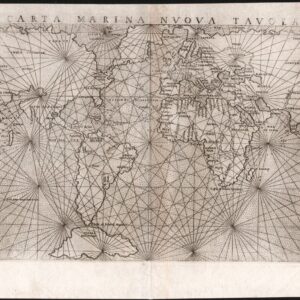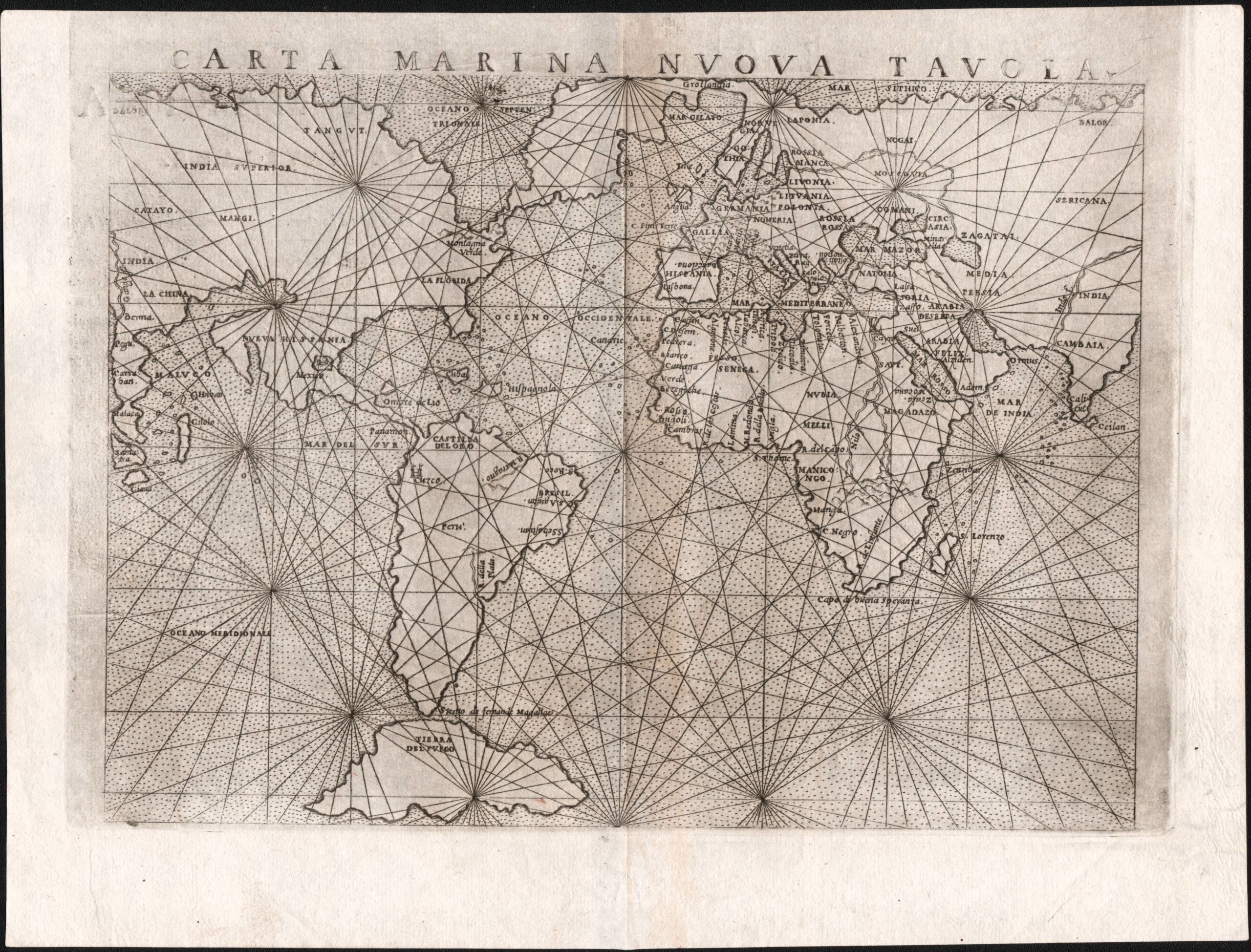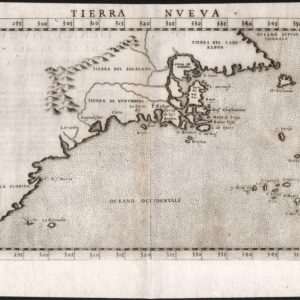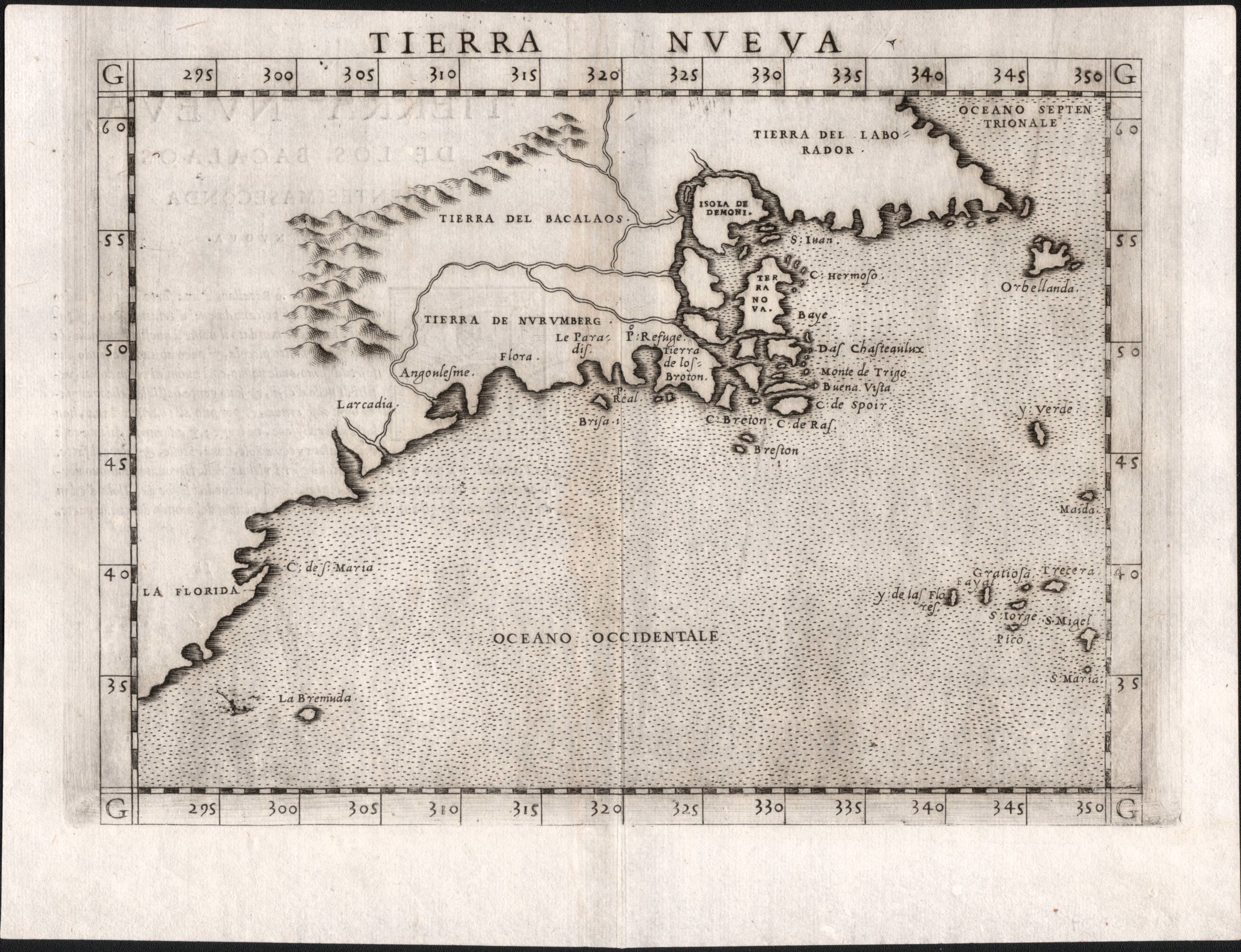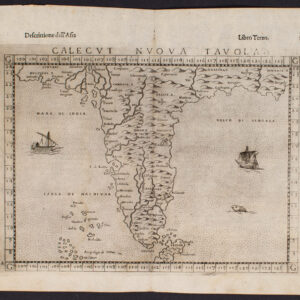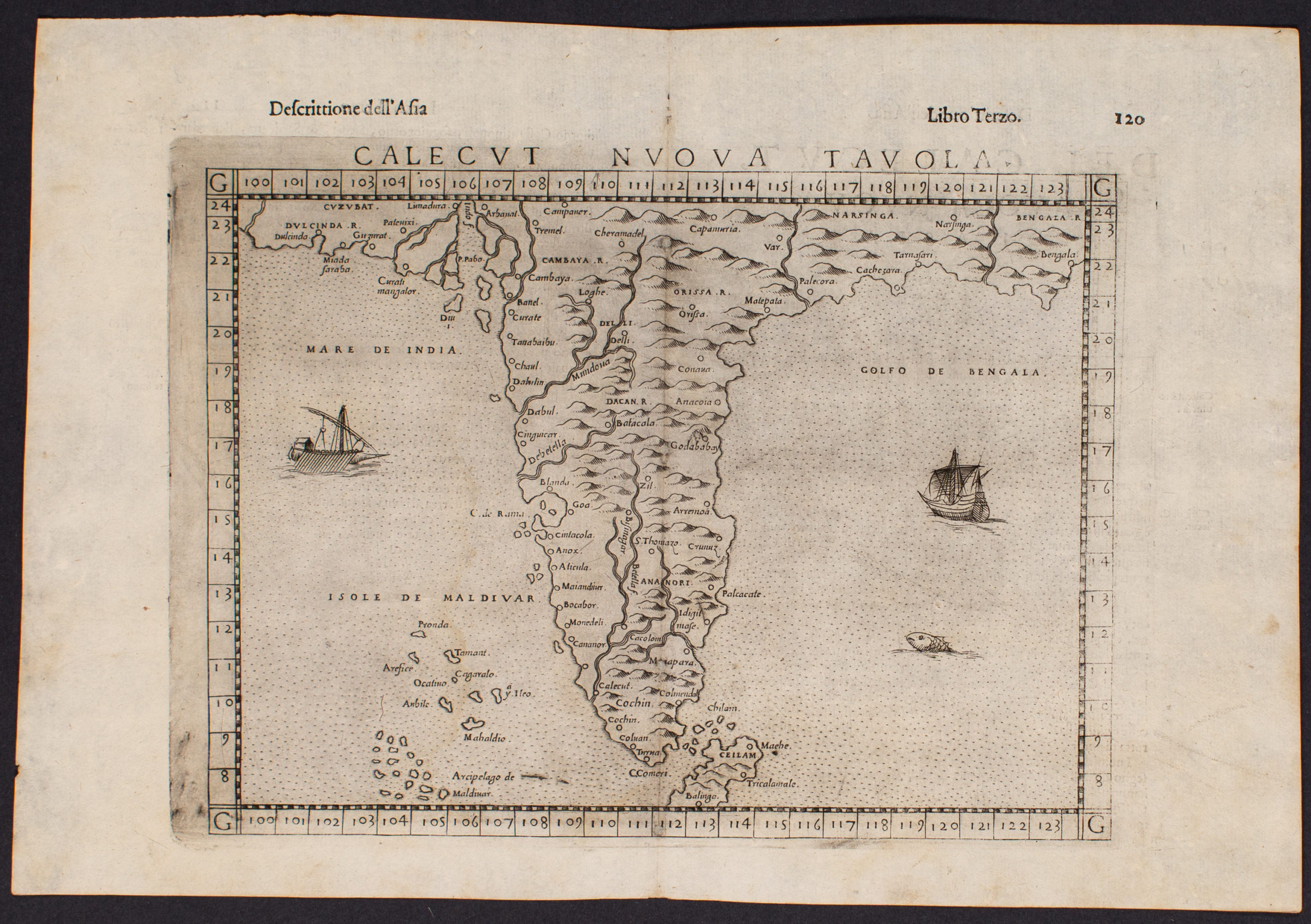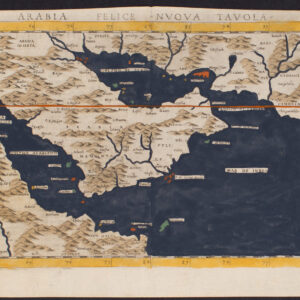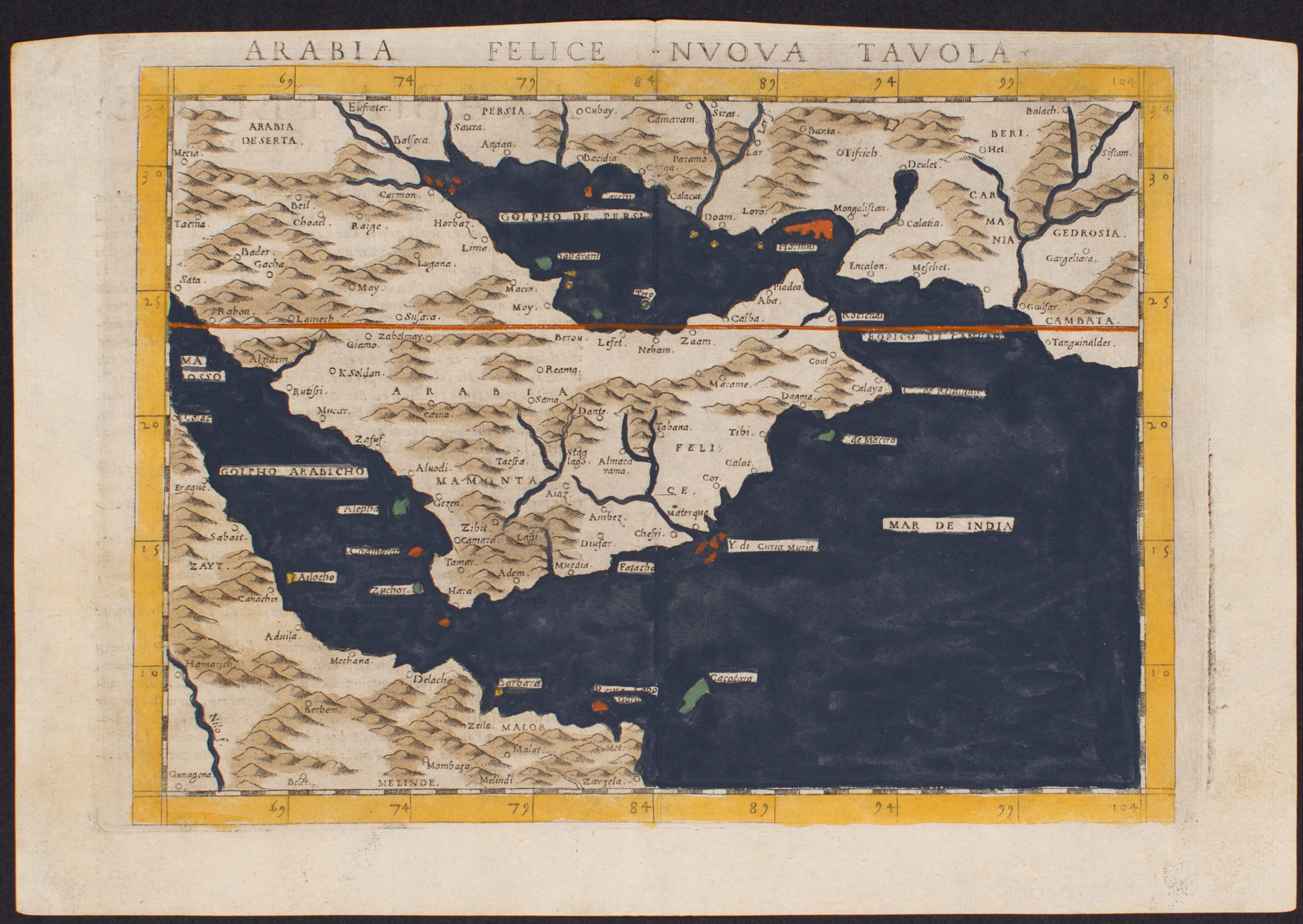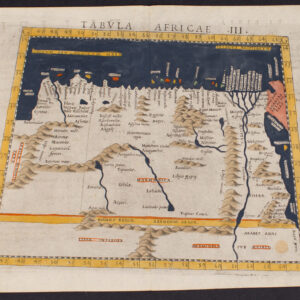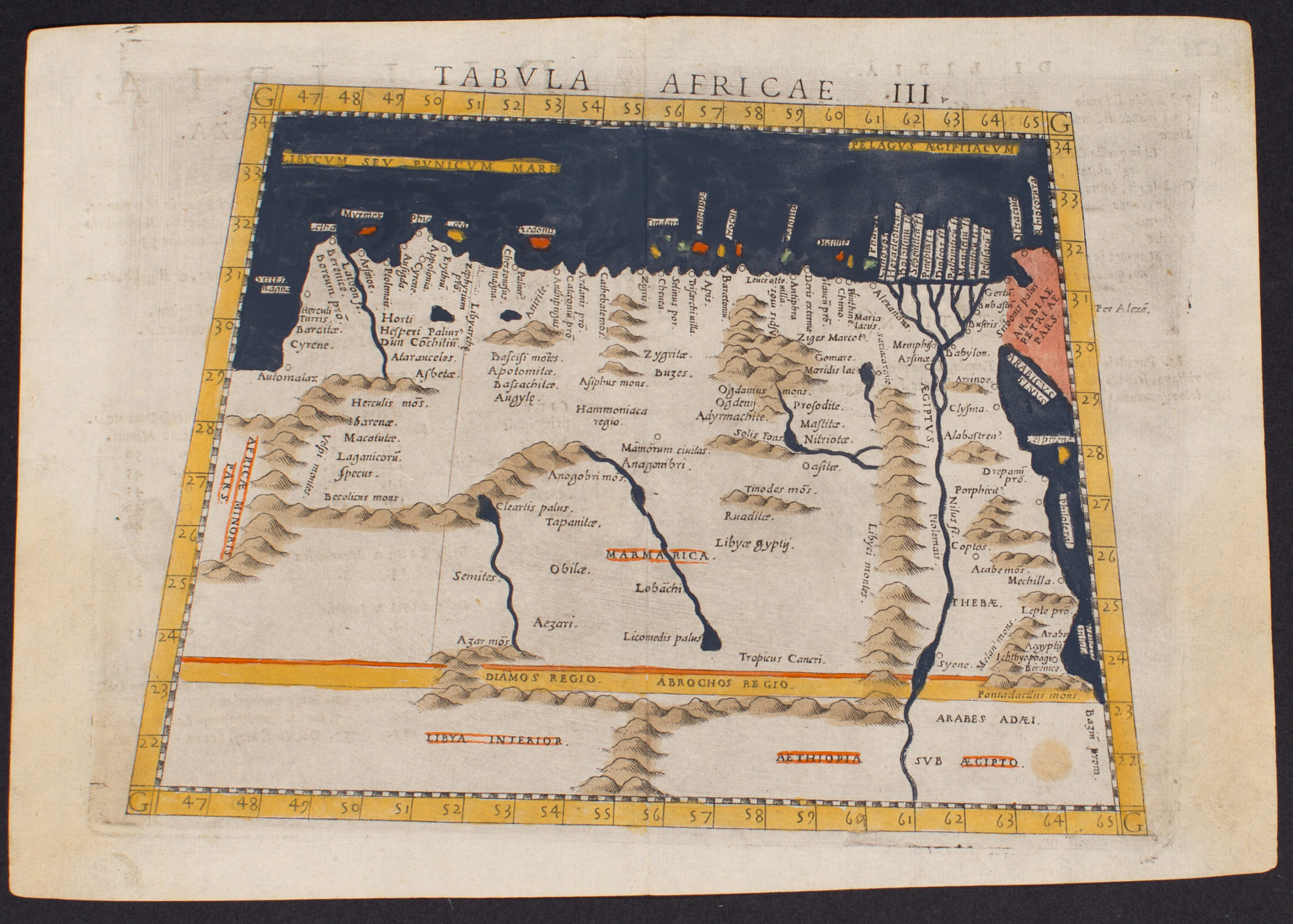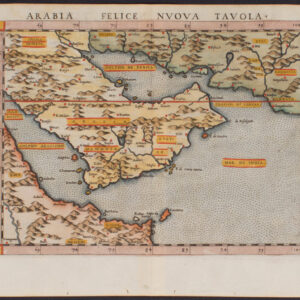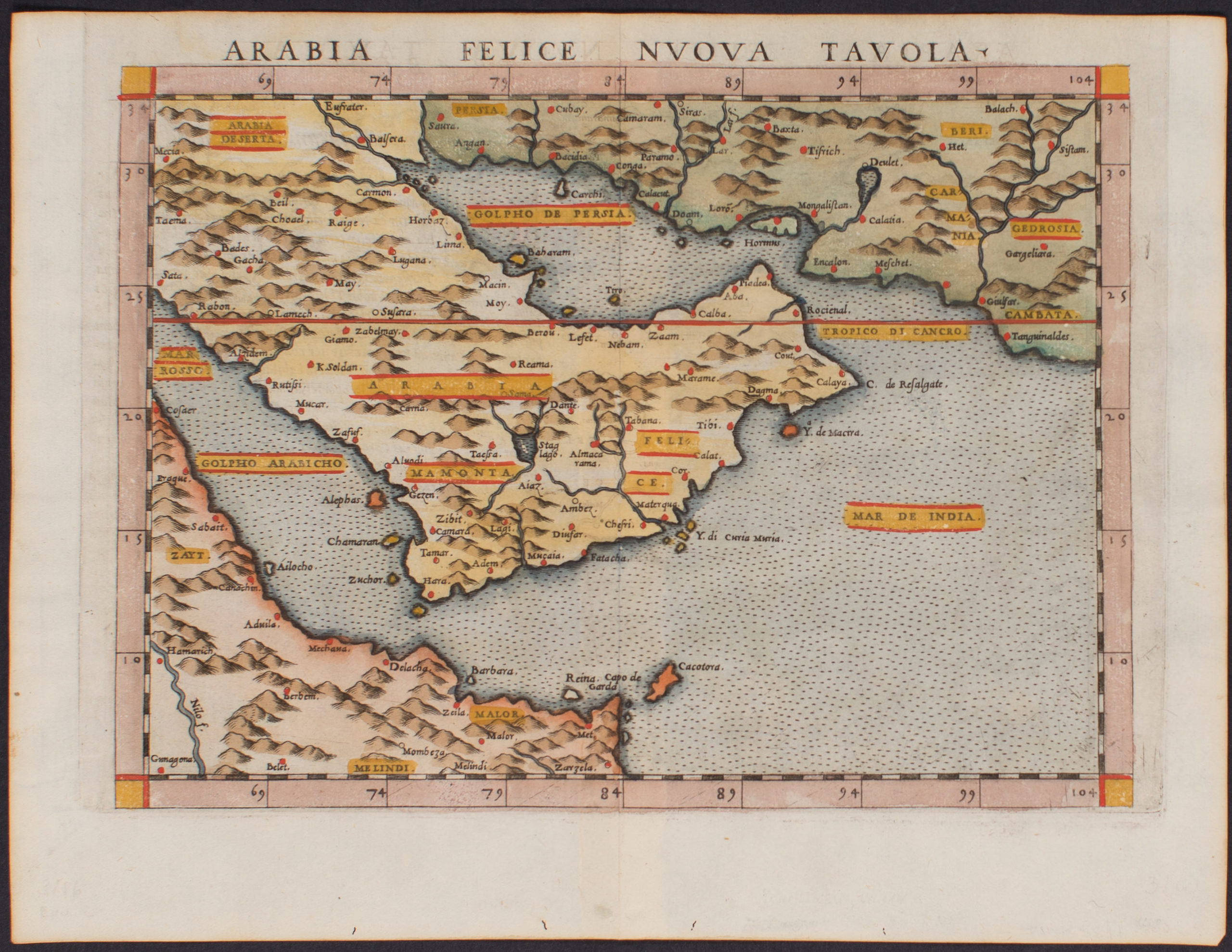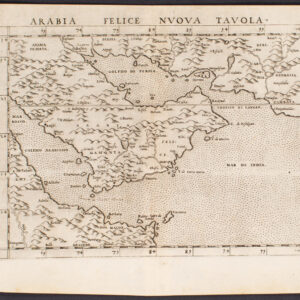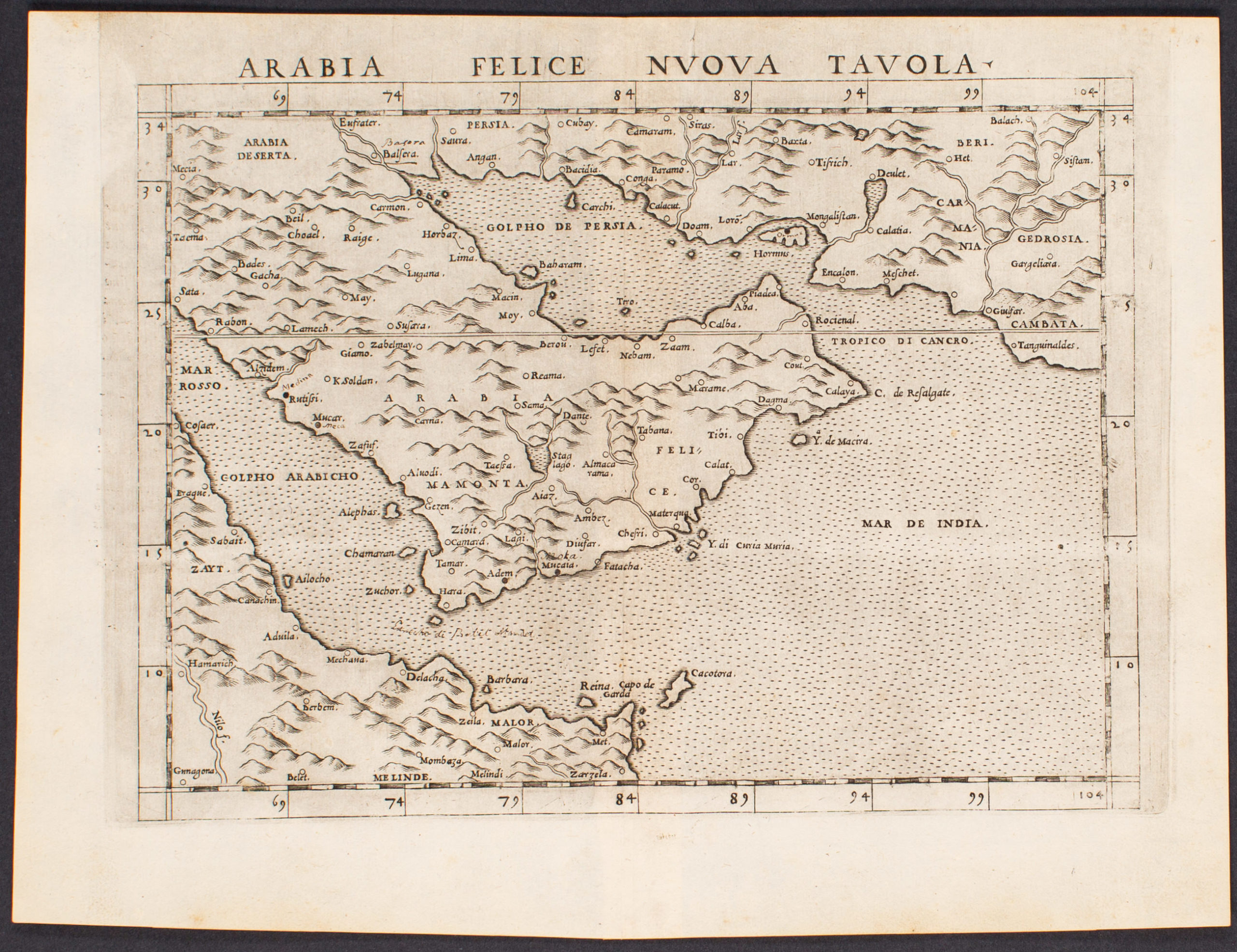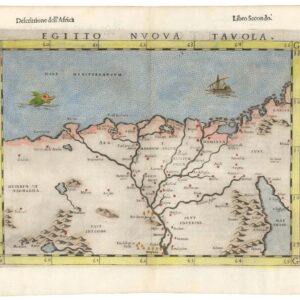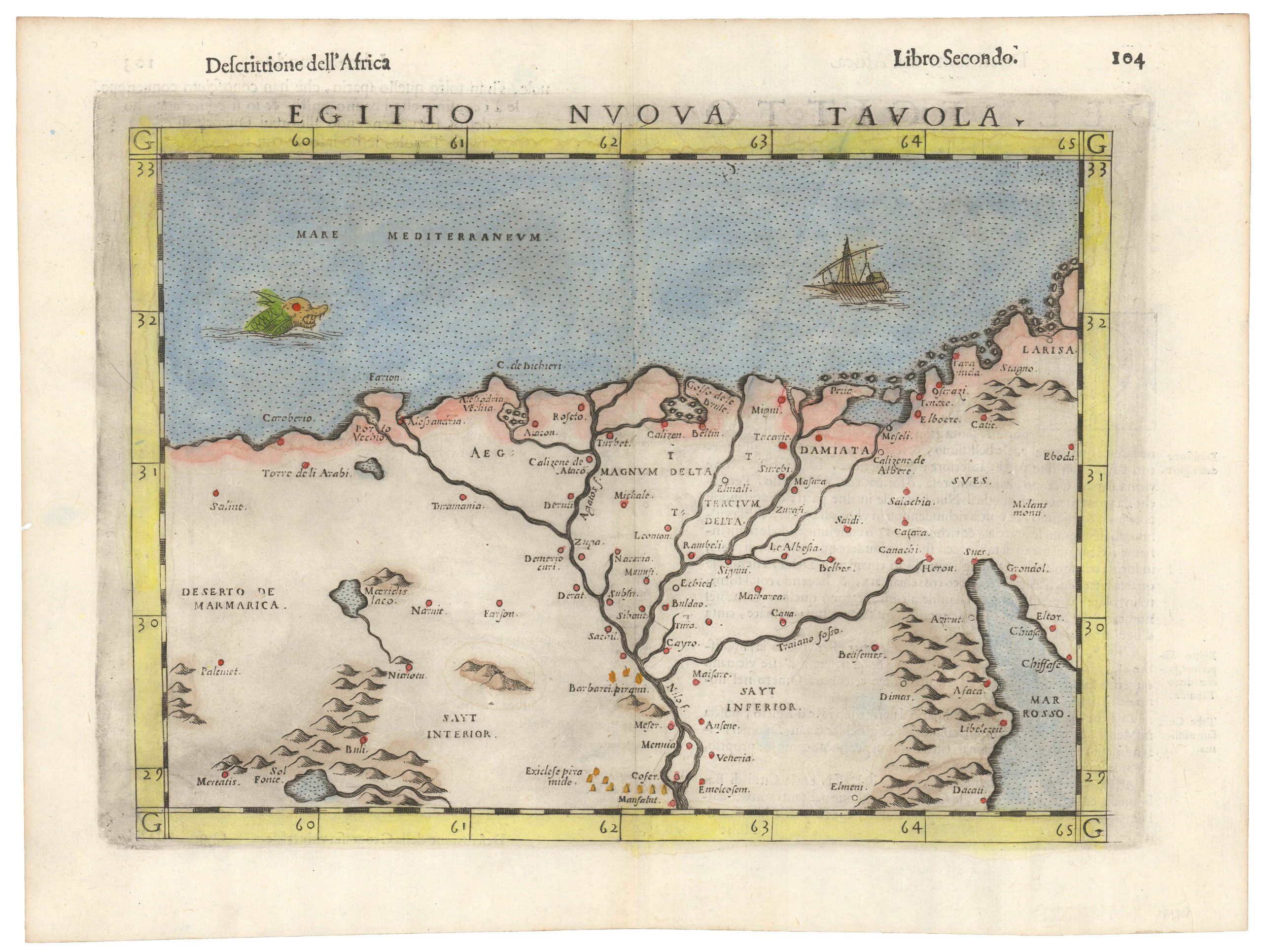Girolamo Ruscelli (1518–1566) was an Italian mathematician, polygraph, and cartographer active in Italy during the early 16th century. He was born around 1518 in Viterbo to a family of minor nobility and humble origins. Throughout his life, Ruscelli moved around, living all over Italy. He started in Aquilea, but his work soon drew him to more important centers of learning. He moved first to Padua, and around 1540, he settled in Rome, where he founded his Accademia dello Sdegno. Around 1545, Ruscelli left Rome for Naples, and in 1548 he finally settled in the city that would make him most famous, Venice.
While posterity primarily remembers Ruscelli as one of the most important cartographers of the Venice School, his primary source of income came from publishing – both his works and copying the work of others. While he wrote on a broad range of subjects himself, the works plagiarised from others were often published by his partner, Plinio Pietrasanta. This lucrative relationship lasted until 1555 when Ruscelli was arrested and tried by the Inquisition for re-publishing a satirical poem by Pietrasanta without his formal permission. Any confrontation with the Inquisition was unpleasant enough, but Ruscelli may have been particularly susceptible to pressure because his wife’s family entertained Protestant sympathies. His brother-in-law was burned at the stake in Rome some years later.
The relationship with Pietrasanta had nevertheless soured, and the publishing firm was soon closed. Instead, Ruscelli partnered up with another Venetian publisher, Vincenzo Valgrisi. It was with Valgrisi that Ruscelli published his famous Ptolemaic Geografia in 1561. This atlas contained sixty-nine engraved maps sporting the latest ideas in Italian cartography. Despite containing some of the latest cutting-edge ideas about the world’s composition, Ruscelli’s atlas also drew heavily on earlier works. Forty of the 69 maps in Ruscelli’s atlas were copied almost directly from Giacomo Gastaldi’s Geografia from 1548.
Despite Ruscelli’s fame as a cartographer, he also achieved considerable recognition under his pseudonym Alessio Piemontese. His greatest success in this regard came the same year as his arrest (1555), with the publication of De Secreti del Alessio Piemontese. In this book of alchemy, Ruscelli reveals himself as a true Renaissance man, dabbling proficiently in multiple disciplines at the same time. His ‘Secrets‘ contained instructions on how to make everything from alchemical compounds and medicines to cosmetics and dyes. The work was so popular that it was re-issued numerous times over the next two centuries, and translated into French, English, German, Latin, Dutch, Spanish, Polish, and even Danish.
-
-
Add to cartQuick View
- World
Carta Marina Nuova Tavola.
- $1,600
- With California attached to Asia and Canada attached to Europe!
-
Add to cart
-
-
Add to cartQuick View
- East & Midwest United States
Tierra Nueva.
- $1,800
- A true first state of one of the earliest maps of the Eastern Seaboard.
-
Add to cart
-
-
Add to cartQuick View
- Arabia and the Red Sea
Tabula Asiae VI
- $475
- 16th century map of Arabia on a Ptolemaic projection.
-
Add to cart
Archived
- Out of Stock
- East & Midwest United States
Tierra Nueva.
- Ruscelli/Rossacio's 1599 map of the Eastern Seaboard: influential, important, highly aesthetic, and full of detailed and embedded stories.
- Read moreQuick View
-
- Out of Stock
- World
Carta Marina Nuova Tavola.
- Cartographic myths, new discoveries, and authoritative precursors: the world on the cusp of geographic understanding.
- Read moreQuick View
-
- Out of Stock
- Atlases & Books
Geografia di Claudio Tolomeo Alessandrino Tradotta di Greco nell’Idioma Volgare Italiano da Girolamo Ruscelli
- A superb and fully intact Ptolemaic Geography from 16th century Venice, constituting a cornerstone in the history of cartography.
- Read moreQuick View
-
- Out of Stock
- World
Carta Marina Nuova Tavola
- Rich, dark impression of Ruscelli's world sea chart.
- Read moreQuick View
-
- Out of Stock
- Iceland & Scandinavia
Septentrionalium Partium Nova Tabula
- The earliest obtainable map of the Nicolò Zeno expedition to Frisland & Greenland in 1380.
- Read moreQuick View
-
- Out of Stock
- World
Carta marina nuova tavola
- Rare first state of Ruscelli's world sea chart.
- Read moreQuick View
-
- Out of Stock
- Canada and The Great Lakes, East & Midwest United States
Tierra Nueva
- Rare first state of one of the earliest maps of the Eastern Seaboard.
- Read moreQuick View
-
- Out of Stock
- Asia
Calecut Nova Tavola
- Ruscelli's Indian peninsula with sea monster and ships
- Read moreQuick View
-
- Out of Stock
- Arabia and the Red Sea
Arabia Felice Nuova Tavola
- 16th century map of the Arabian Peninsula
- Read moreQuick View
-
- Out of Stock
- Africa
Tabula Africae III
- 16th century map of Egypt and Libya
- Read moreQuick View
-
- Out of Stock
- Arabia and the Red Sea
Arabia Felice Nuova Tavola
- 1598 map of Arabia in full color.
- Read moreQuick View
-
- Out of Stock
- Arabia and the Red Sea
Arabia Felice Nuova Tavola
- 1561 copper-engraved map of Arabia.
- Read moreQuick View
-
- Out of Stock
- Africa
Egitto Nuova Tavola
- Attractive 1598 Venetian map of Lower Egypt and the Nile Delta.
- Read moreQuick View
-
